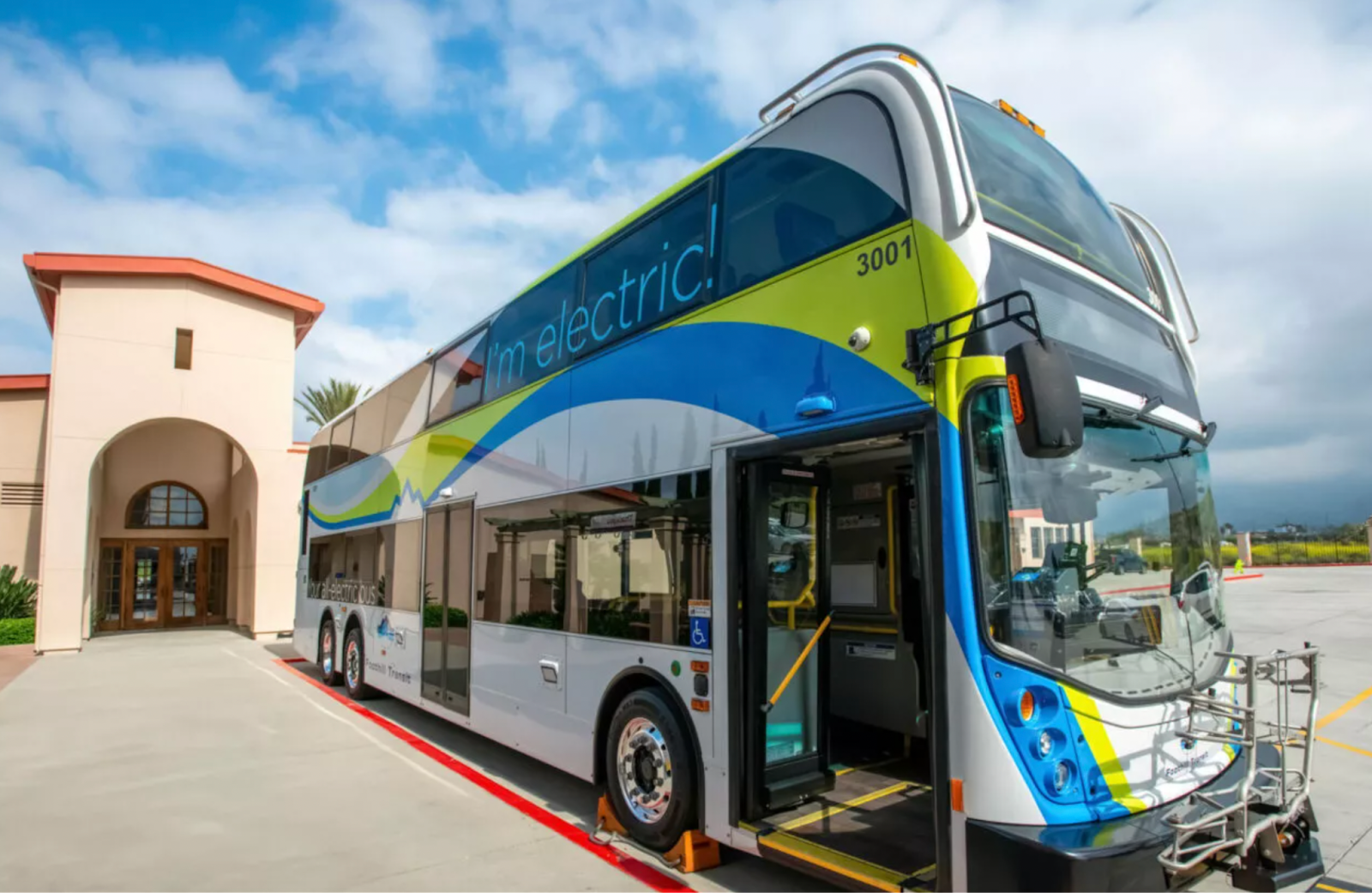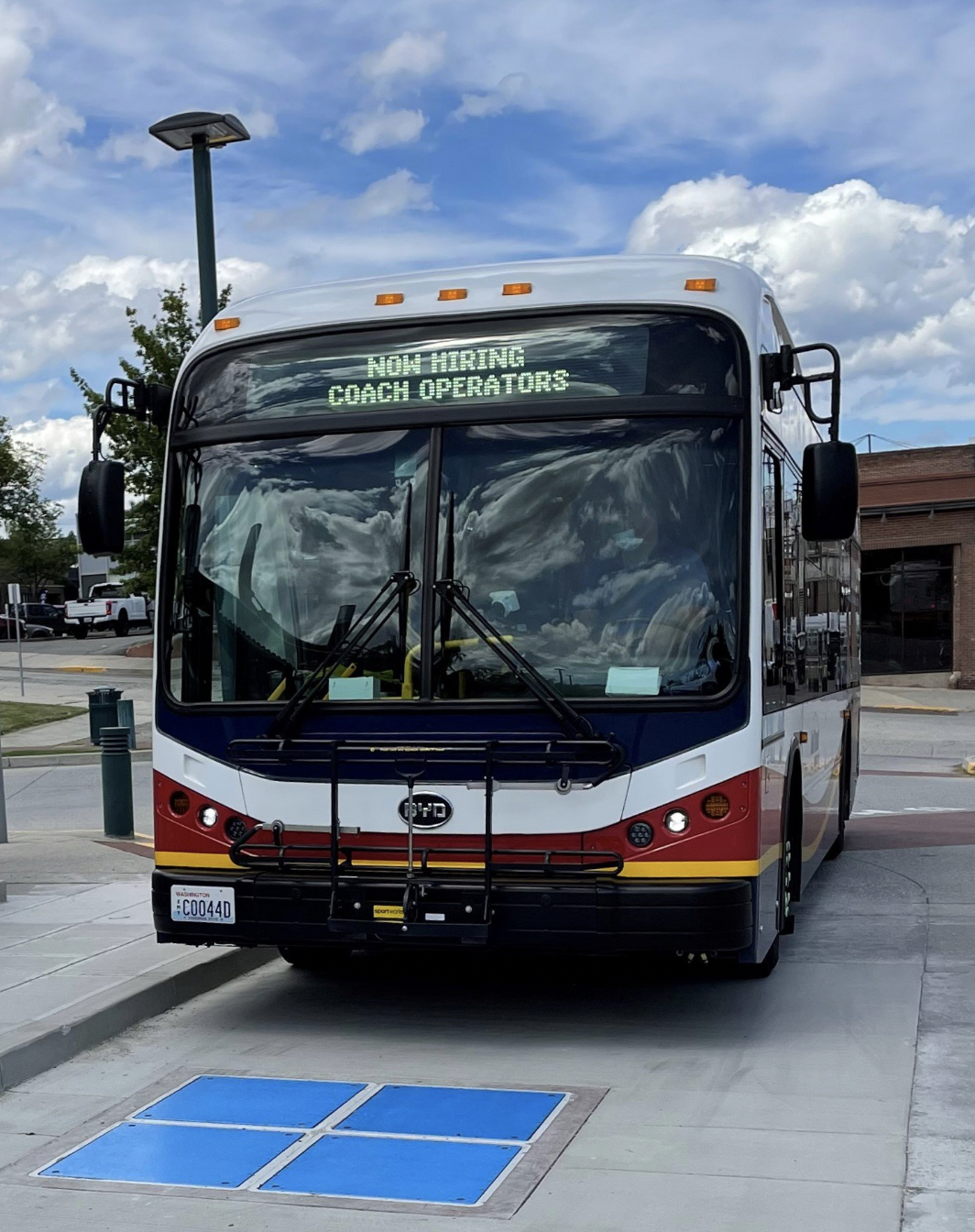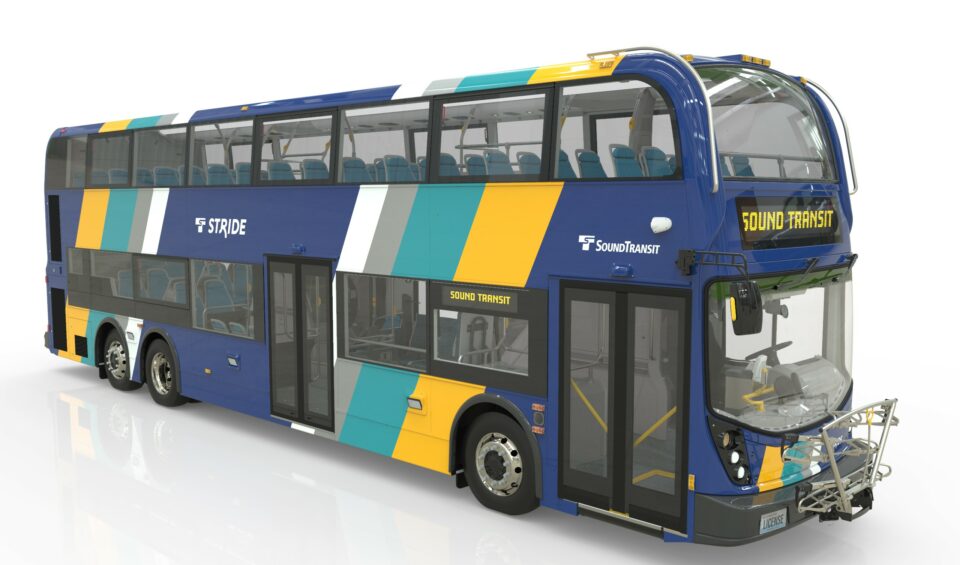Seattle area transit firm Sound Transit continues to electrify its bus fleet with an order of 33 double-decker buses from British manufacturer Alexander Dennis. A taste from across the pond is gracing the streets of the Emerald City.
These buses have wireless charging capabilities that make daytime charging more efficient. Seattle will become the first major United States city to use double-decker electric buses. They will follow the 19-mile S1 route and the 20-mile S2 route. There also are new bus lanes to improve transit efficiency and reduce congestion.
The Enviro500 bus can seat up to 82 people across two decks. Alexander Dennis, an NFI subsidiary, plans to build them in the U.S. through Big Rig Manufacturing, a subsidiary of Big Rig Collision based in Winnipeg, Canada.
Big Rig Manufacturing’s factory is in Las Vegas. Since these buses are being built in the U.S., they will qualify for the Inflation Reduction Act’s clean vehicle tax credits. Alexander Dennis’s website says the Enviro500 is Buy America-compliant.

Photo Courtesy Alexander Dennis
Alexander Dennis ran a similar bus program in the Asia-Pacific region that was low in cost and highly successful when deployed. Factories in China and New Zealand were contracted to build double-deckers for various public transportation firms.
“We are excited to once again be working with our long-standing customer Sound Transit in the Puget Sound region, who have selected our Enviro500EV with next-generation technology for their new Stride bus rapid transit service,” Stephen Walsh, vice president for Alexander Dennis in North America, said in a statement.
A new wireless solution will be introduced to Seattle to charge these buses. Pennsylvania-based InductEV is installing high-performance wireless EV charging stations to improve charging efficiency and reduce grid strain from overnight charging.
Thirteen 300 kW in-ground stations will be used for these buses, making Sound Transit the seventh Washington state transit system to use this technology.
It joins Jefferson Transit, Kitsap Transit, Community Transit, Link Transit, Grant Transit, and Everett Transit, with most in the Puget Sound-Seattle region.

Photo Courtesy InductEV
“Together, we’ll grow the company’s existing footprint and, by so doing, accelerate the benefits of wireless inductive charging technology in the commercial and municipal transport sectors,” Brandon Anulewicz, InductEV’s chief revenue officer, said in a press release.
Around 100 buses use wireless charging, 35 of which are InductEV charging pads. The pads are designed to utilize electricity output during the day. These stations can run on renewable energy like solar, a sustainable transportation solution since a majority of the electricity in Puget Sound comes from renewables. InductEV brought its technology to Washington state in 2017 when it installed charging stations for Link Transit in Wenatchee.
“It’s about more than just buses. It’s about transforming communities, reducing emissions, and creating greener, more efficient transportation systems,” Anulewciz explained. “We continue to work closely with local agencies to facilitate the expansion of statewide wireless networks, connecting Washington communities and spearheading sustainable transportation solutions.”





